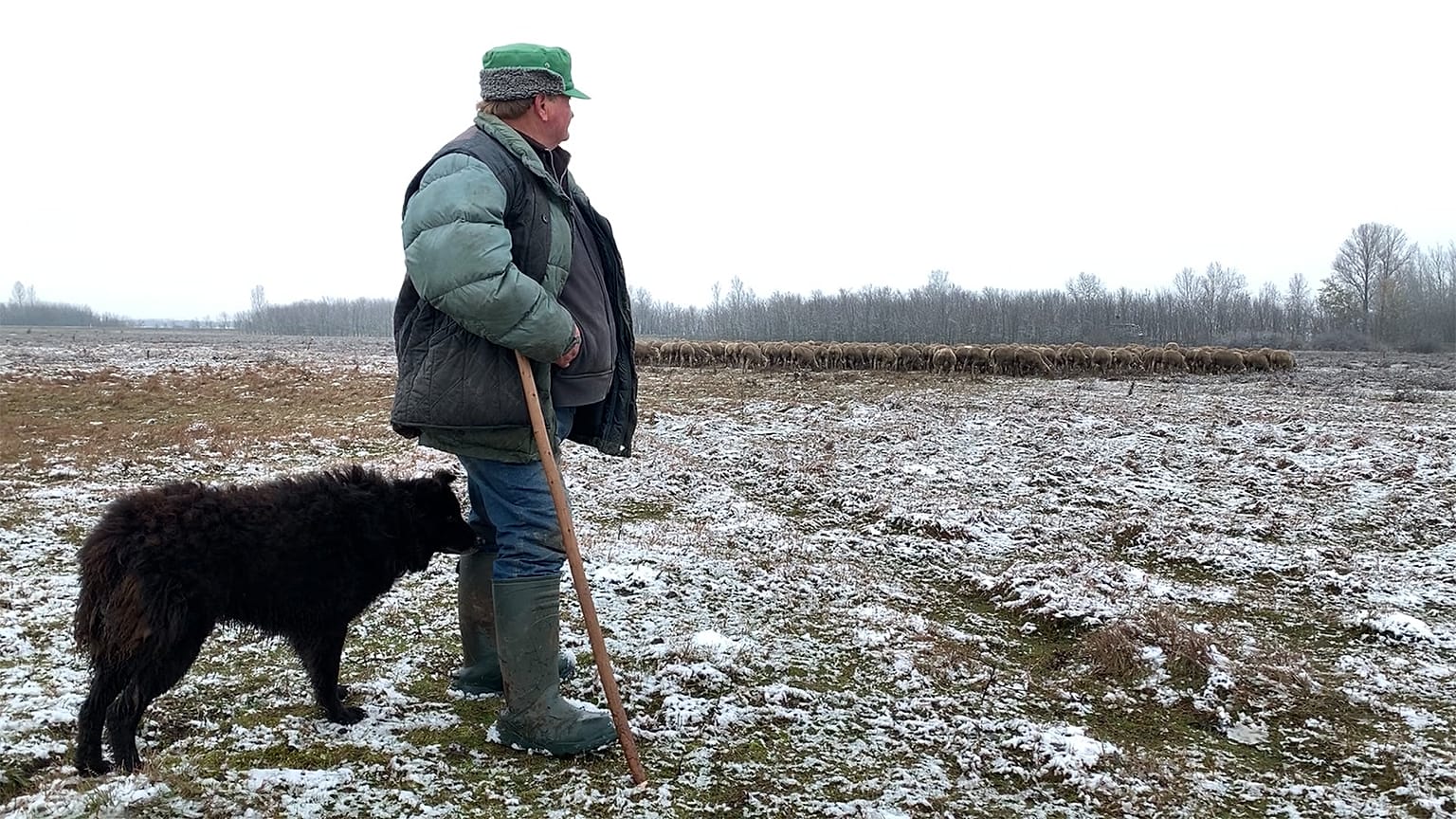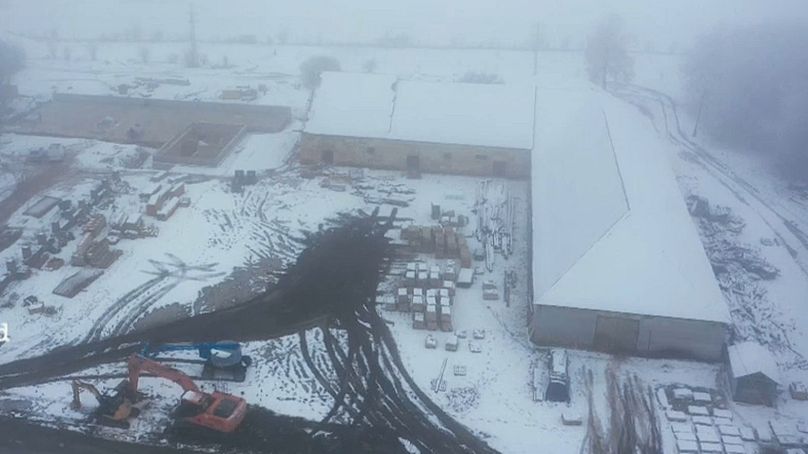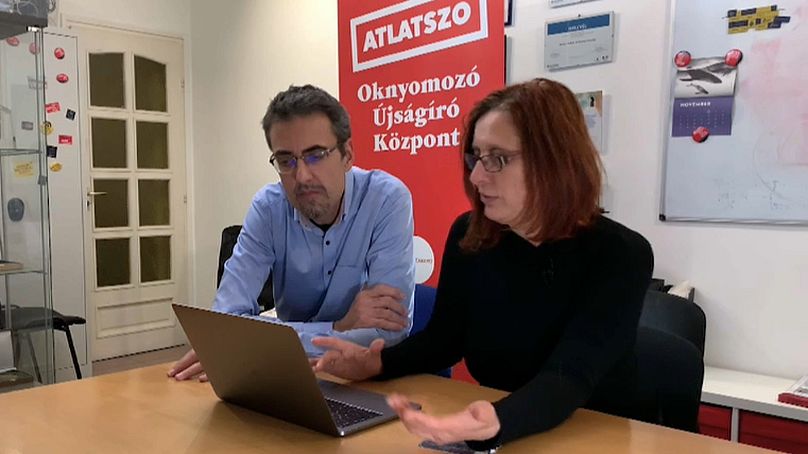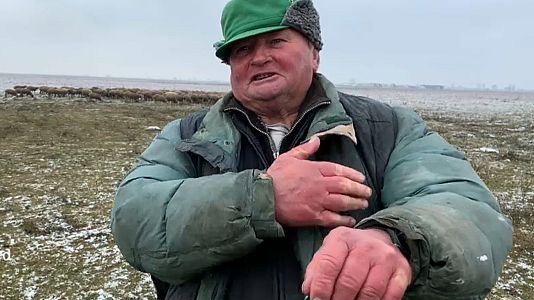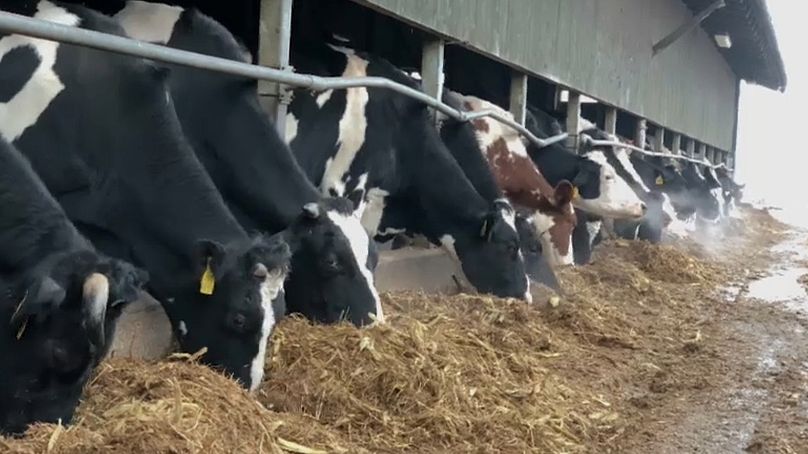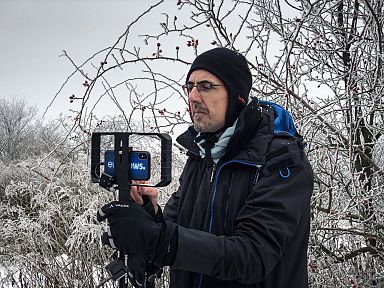Hungary is in the headlines again with allegations of large-scale land-grabbing by the ruling elite. Unreported Europe investigates whether leading politicians are handing out precious farmland to friends and family.
Hungary is in the headlines again, amid allegations of widespread cronyism and land-grabbing by the country’s political elite and oligarchs.
 ADVERTISEMENT
ADVERTISEMENT
 ADVERTISEMENT
ADVERTISEMENT
They have been accused of abusing their power, grabbing land and siphoning European taxpayers' money to fill their pockets.
The 200-year-old imperial estate of Hatvanpuszta in Felcsút county is now among properties owned by the family of Prime Minister Viktor Orbán, according to Gabi Horn, an investigative journalist with the whistleblower platform Átlátszó.
“Many people are wondering where is the money coming from for such big developments?" said Horn. "And why is it the government's friends and relatives that get into position with contracts?"
Questions have also been raised about land owned by Lőrinc Mészáros, a childhood friend of the Prime Minister.
Some Hungarians claim he is Viktor Orbán’s frontman, managing huge parts of Orbán’s fortune. Multiple business links, including land property deals, allegedly connect the two men.
"Almost all of this area here is owned by Lőrinc Mészáros, Viktor Orbán's childhood friend, or the Prime Minister´s family, his connections or business partners,” Horn said. “It was often Fidesz, the government party’s friends, relations and people close to them who were able to get the land rentals.”
Euronews asked for an interview with Mr Mészáros, but was refused.
Gabi Horn said that although there are laws governing how much land can be owned, there are ways around it.
“Yes, there is a law about this – but you can also play around the law and the way to play around is, if you and your family members each buy some land.
“We can see various interest groups around different oligarchs who managed to become rich as a result of public contracts – because of good connections to ruling Fidesz or the Prime Minister himself.”
Prime Minister Orbán attacks the EU – but is happy for Hungary to receive massive European agricultural subsidies. The bigger the area leased or bought, the more financial support received from the European Union.
Eighty per cent of Hungarian farmers’ net income is generated by subsidies, according to former Secretary of State for Agriculture György Raskó.
He alleges that friends of the Prime Minister were favoured when it came to leasing land.
"The crony economy is a fact in Hungary and there are friends of the Prime Minister who were positively discriminated I would say. And they have access to different funds."
The government rejects the accusations, saying that the land redistribution is legal and that it is important to build up big agro-businesses in order to be competitive with western Europe.
But the government redistribution of land leases in eastern Hungary has crippled some local farmers’ livelihoods.
One out of four new leasing contracts were found to be faulty. For example, city businessmen have been accused of setting up fake addresses in villages to take part in land tendering procedures.
Zsigmond Mavranyi, a shepherd in Berettyóújfalu, told Unreported Europe: "The friends of the Fidesz Party got the land, unfortunately, and the so-called fake farmers. The real farmers such as us did not get anything."
A farmer, Roland Karácson, said: "Those fake farmers do not have experience in farming at all. They did not even come to see the pasture. Ninety per cent of them don´t even have animals. But they do not let us graze our animals."
Some locals say bidders were expected to pay some two million Forint – about 6,000 euros - in kickbacks.
But Gyula Buj didn’t have the money. When he took part in the tender, together with two experienced local shepherds, they lost the bid.
Buj said: "Those who got the land were ‘closer to the fire’, they had connections. That is exactly how we have to call it. I had 600 sheep, but they didn’t care what would happen to them.”
Erika Tóth is one farmer who says the land redistribution has badly affected her livelihood.
In the 1990s, the family built up their dairy farm in Hortobágy from scratch. In 2008 and again in 2014 they got backing from the EU to stay competitive.
But then their long-term land leasing contract was not renewed. She does not know why.
Her farm is surrounded by 170 hectares which used to provide pasture for her cows.
“But it was taken away from us by someone else,” she said. “So we can no longer go anywhere to graze our animals."
The family had almost 500 dairy cows. Today, their number is down to 300. Without access to pasture, Tóth has to buy expensive forage – all year long. Her dream of making a living with a modern family farm is threatened.
“Our farm used to be completely surrounded by pasture land. My family was impacted heavily, because my father became depressed and a short time later he died, because of that tragedy."
The allegations over land leasing and selling procedures has triggered a number of lawsuits, including at the European Court of Justice.
Éva Ács is director of the renowned Kishantos organic farm, until recently one of Europe’s most outstanding organic farms.
But the land was taken away from the local cooperative and divided into eight plots.
Ács blames Prime Minister Orbán for having ordered an end to Kishantos.
“We were attacked by a group of guards here, in our own farm. They were sent by the state. And this organic demonstration farm, 452 hectares, was destroyed on this awful day.”
Horn says the Átlátszó headquarters, too, has been targeted. A few weeks ago, right wing extremists attacked the building.
She and her Átlátszó colleagues have won several awards for digging into the Hungarian fog. And they say they will continue their work.














